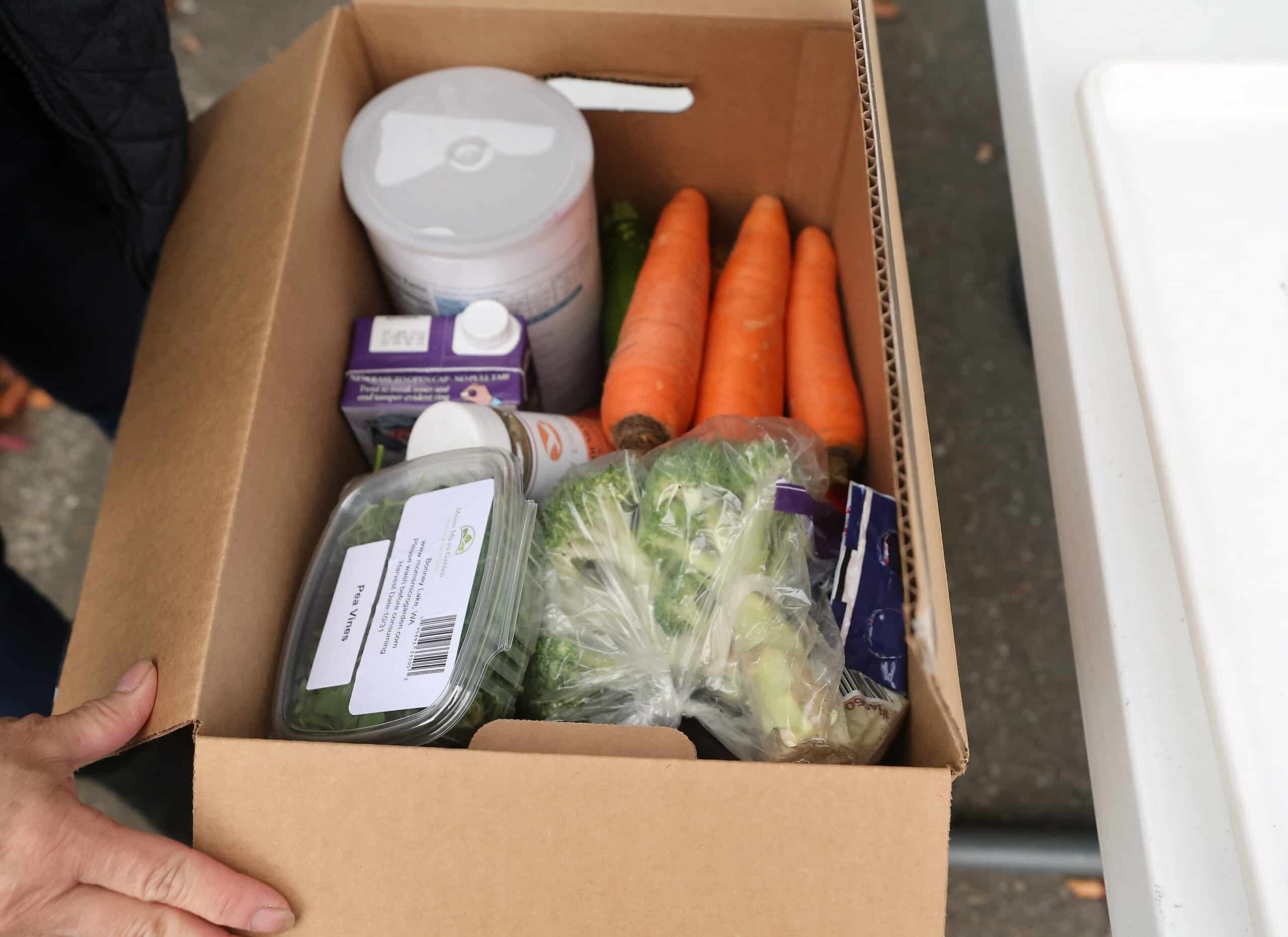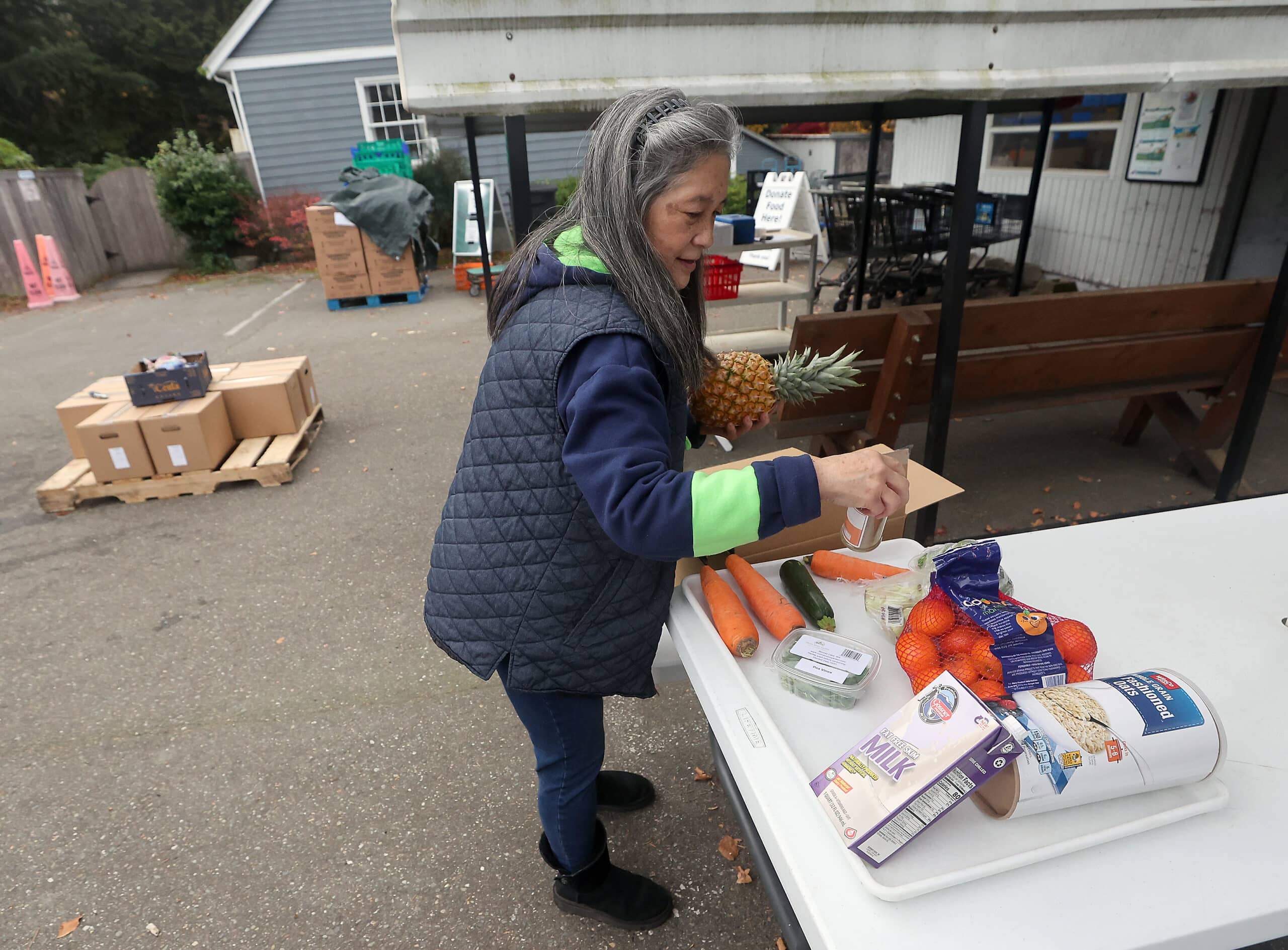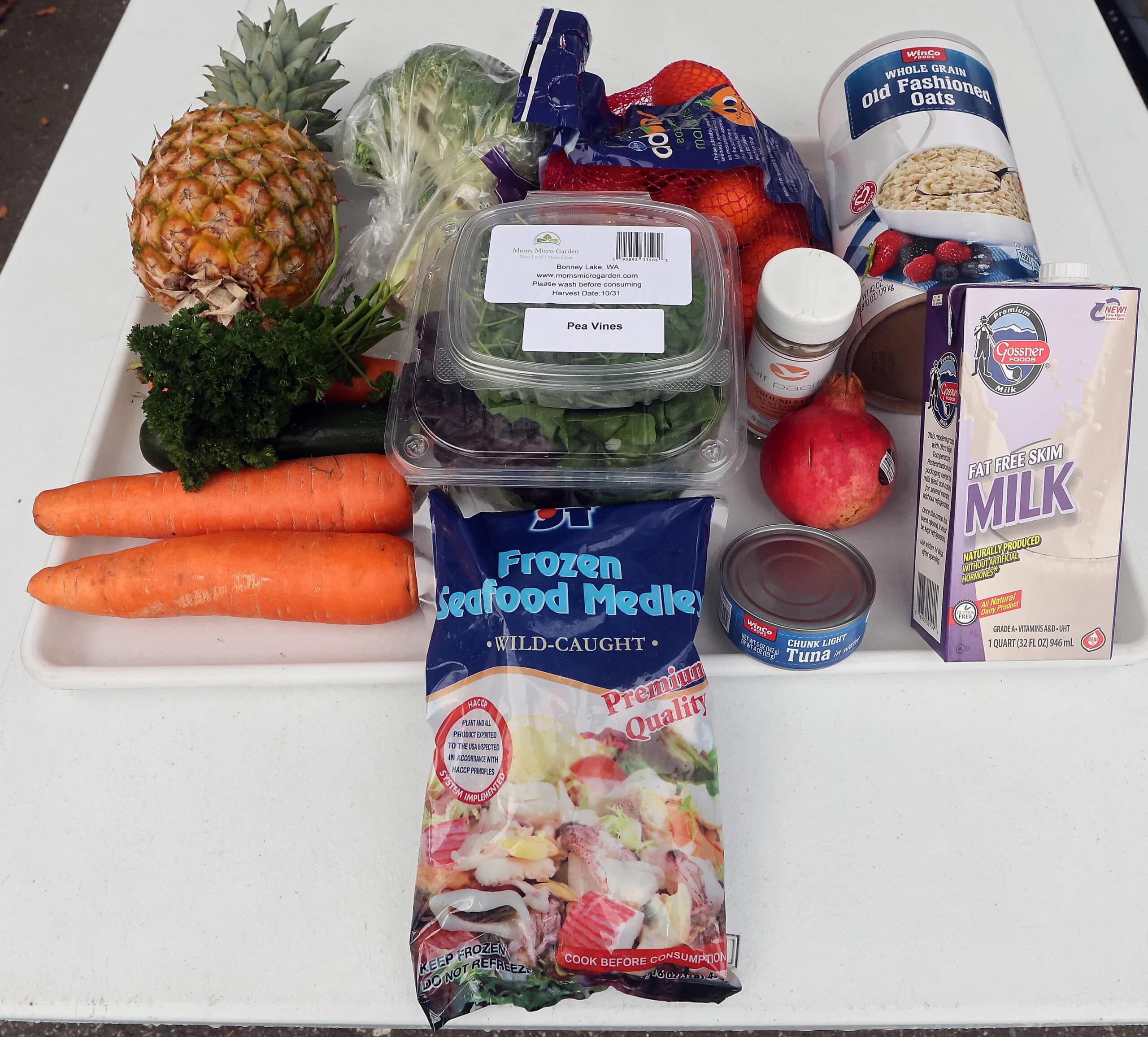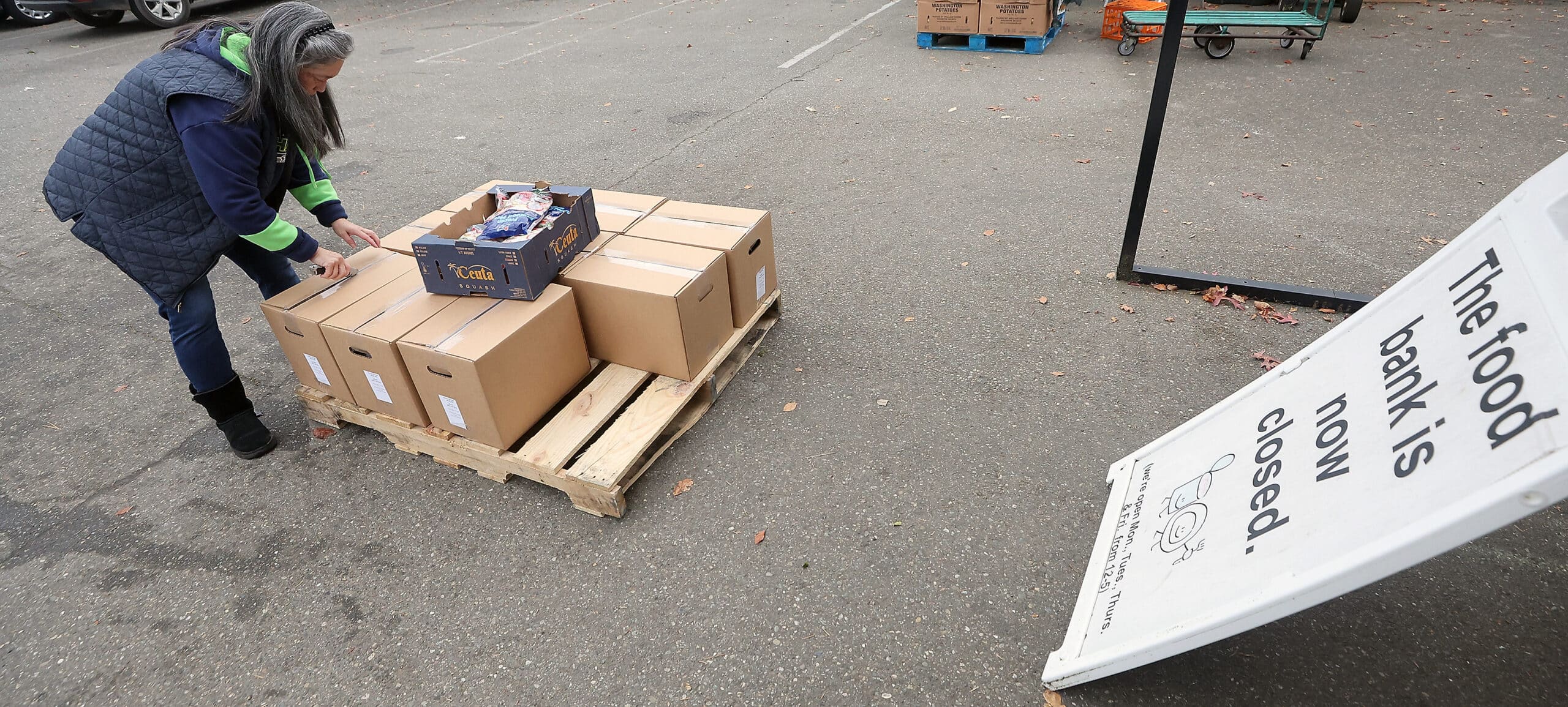Community Health & Wellness
Port Orchard clinic helping bring healthy food to some patients’ doors under pilot program
Fransican Medical Clinic manager Diane Kropp-Wolner knows she and her staff of 12 physicians only have so much control over their patients’ health beyond the doors of their Port Orchard clinic.
Health & Wellness Sponsor
Health and Wellness stories are made possible in part by Virginia Mason Franciscan Health, a proud sponsor of Gig Harbor Now.
They can prescribe medications and make referrals, but rarely are they able to overcome systematic determinants of health impacting a patients daily life, like poverty, housing, transportation, or food insecurity.
“They trust us and come to us for their medical care,” Kropp-Wolner said. “It’s a whole different thing to be able to help people once they get home.”
Addressing some of those barriers is at the core of the clinic’s innovative new medically-tailored food box project. Through a partnership with the South Kitsap Helpline, the clinic is delivering nutritious foods directly to patients with diabetes who are also facing food insecurity and mobility challenges.

South Kitsap Helpline food bank manager Susan Saiki opens a box of healthy food that will be delivered directly to patients with diabetes who are also facing food insecurity and mobility challenges. Photo by Meegan M. Reid/Kitsap Sun
Reducing food insecurity
Virginia Mason Fransican Health, the clinic’s parent company, brought the pilot project to Kitsap in September. VMFH implemented the model at several facilities focusing on cardiovascular diseases and diabetes. It began last year at a heart failure clinic in Tacoma, before expanding to other cardiology and diabetes clinics across Pierce County.
The Kitsap pilot is part of a broader VMFH push to reduce food insecurity through a variety of new programs. They are all funded through a 3-year, $500,000 grant from CommonSpirit Health Mission and Ministry Fund.
As of July, VMFH reported 139 patients enrolled in the food box program throughout the region. Enrolled participants experienced a 61% reduction in hospital admissions and 75% reduction in emergency room visits.
In Kitsap, the project supports distribution of food boxes to patients every other week over a six month period. The program is serving about a dozen patients so far and could grow to as many as 50.
Kropp-Wolner said the program is not “standard medicine” but providing healthy food to people with chronic disease like diabetes can help them meet prescribed diet goals and prevent additional complications from a poor diet.

South Kitsap Helpline food bank manager Susan Saiki unpacks one of the boxes of nutritious foods that will be delivered directly to patients with diabetes. Photo by Meegan M. Reid/Kitsap Sun
Mobility issues
Often, patients with diabetes who have low incomes or mobility issues face challenges accessing healthy foods. Whole and nutritious foods are typically more expensive and less available than processed goods.
That could be particularly true for some Kitsap residents. Less than a quarter of the population live within 2 miles of a supermarket, according to a 2019 report from the Kitsap Public Health District on local food deserts. The most disadvantaged residents live in areas where stores are not concentrated. According to health district data, over 11% of residents experienced food insecurity in 2022.
“For many of our patients, they are faced with incredibly difficult decisions,” Amanda Carter, an ambulatory clinical pharmacist in the heart failure clinic at St. Joseph Medical Center, said in a statement. “They are forced to choose between paying utility bills, or affording healthy foods. What we wanted to do through this program was to help reduce that burden.”
Prior to this program, Kropp-Wolner said physicians referred people to the food bank. But limited infrastructure connected the two agencies. People who could not physically get to the food bank had few options.
Now, when a physician screens a patient for diabetes, they can directly notify South Kitsap Helpline. The provider gives the food bank manager the patient’s contact information. The food bank manager coordinates with the patient about enrolling in the program.

Healthy foods being packaged for delivery to diabetes patients at South Kitsap Helpline on Friday, Nov. 8, 2024. Photo by Meegan M. Reid/Kitsap Sun
DoorDash delivers the food
On delivery day, early Friday mornings, boxes from Auburn-based wholesale food company Cascadia Produce arrive at South Kitsap Helpline. Staff add some supplemental products. Then drivers from DoorDash, the food delivery app, deliver a handful of boxes to patients’ homes.
“It’s all done locally,” Kropp-Wolner said. “It’s not some huge manufacturer, it’s a local produce company, working with our local food bank working with our local food bank.”
VMFH approached South Kitsap Helpline about starting the food box partnership this summer, said Helpline Executive Director Jennifer Hardison. The partnership comes as food banks across the Kitsap Peninsula have seen an uptick in customers.
Bremerton Foodline and The Gig Harbor Peninsula FISH Food bank have reported more customers after a period of high inflation and the reduction of Pandemic-era food and housing assistance programs.
The trend has been similar at South Kitsap Helpline, Hardison said. With a little more than two months left in the year, they have already served 2,000 more households compared to last year. About 80 to 100 households come to the food bank on Mitchell Avenue, about 3 miles from the Fransican Clinic, each day it’s open, she said.
Hoping to expand
When Hardison first started working at Helpline in 2001, it primarily offered food bank staples like boxed pastas, ramens, baked goods and other foods high in preservatives. Over the years she says they have aimed to provide more fresh, whole foods to meet the needs of the community.
“It’s really, really important to us to make sure that people have not only food, but really healthy, good food that won’t contribute to causing more problems,” she said.
Although there was some early trepidation about the pilot project, Hardison said it has been a great experience. Working with DoorDash opened up many doors for them, she said. They are now looking at expanding their delivery program through additional grants, including a delivery program for seniors.
“We sort of got our feet wet and we’ve learned how to facilitate the ordering with Cascadia and the DoorDash delivery. It’s a lot easier than we were thinking that was going to be,” she said. “It’s been a really great opportunity and I think it’s helping people.”

South Kitsap Helpline food bank manager Susan Saiki a box of healthy food set to be delivered to diabetes patients on Friday, Nov. 8, 2024. Photo by Meegan M. Reid/Kitsap Sun

